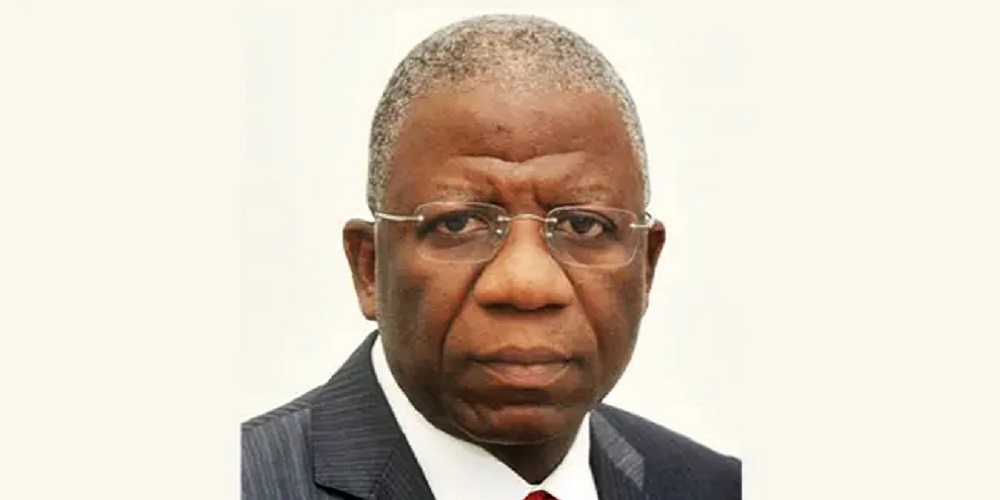News
Oronsaye Report: Full List of Agencies to be scrapped, merged, relocated

The Executive Council of the Federation, also known as the Federal Executive Council (FEC) on Monday approved the implementation of the recommendations of the Steve Oronsaye panel on the restructuring and rationalisation of Federal agencies, parastatals and commissions.
The government said the implementation of the policy involves the merging, subsuming and scrapping of agencies with similar functions.
Bayo Onanuga, the special adviser on information and strategy to President Bola Tinubu said the measure became necessary to enhance efficiency in the federal service, and reduce the cost of governance.
“The Oronsaye report was submitted in 2012 to the Goodluck Jonathan administration,” Mr Onanuga said in a statement. “In 2014, the Jonathan government released a white paper on the report. The Buhari administration after re-examining the white paper also released a second white paper in August 2022, but did not implement the report.
“However, the Tinubu administration has decided to confront the monster of high governance cost by implementing elements of the report.
“An eight-man committee has a 12-week deadline to ensure that the necessary legislative amendments and administrative restructuring needed to implement the reforms are effected in an efficient manner.
“The committee comprises Secretary to the Government of the Federation, Head of the Civil Service, Attorney General and Justice Minister, Budget and Planning Minister, DG Bureau of Public Service Reform, Special Adviser to the President on Policy Coordination, Special assistant to the president on National Assembly. The Cabinet Affairs Office will serve as the secretariat.”
The Senior Special Assistant to the President on Print Media, Abdulaziz Abdulaziz, later shared a full list of the agencies to be affected with Sources.
Find the list below.
LIST OF AGENCIES, COMMISSIONS AND PARATALS AFFECTED BY THE APPROVAL OF THE FEDERAL EXECUTIVE COUNCIL MEETING [FEC] MEETING OF 26TH FEBRUARY 2023 ON THE RECOMMENDATION OF THE 2022 AND 2012 REPORTS ON RESTRUCTURING AND RATIONALIZATION OF FEDERAL GOVERNMENT PARASTATALS AGENCIES AND COMMISSIONS [ORONSAYE PANEL REPORT]
AGENCIES TO BE SCRAPPED
1. Pension Transitional Arrangement Directorate to be scrapped and functions
transferred to the Federal Ministry of Finance
2. National Senior Secondary Education Commission (NSSEC) to be scrapped and
functions transferred to the department of Basic and Secondary Education in
Federal Ministry of Education.
AGENCIES TO BE MERGED
1. National Agency for the Control of Aids (NACA) to be merged under the Centre
for Disease Control in Federal Ministry of Health.
2. National Emergency Agency (NEMA) to be merged with National Commission
Refugee, Migration and Internally Displaced persons [NCFRMI].
3. Directorate of Technical Cooperation in Africa (DTCA) to be merged with
Directorate of Technical Aid (DTAC) and to function as a department in the
Ministry of Foreign Affairs.
4. Infrastructure Concession and Regulatory Commission (ICRC) to be merged with Bureau for Public Enterprise (BPE).
5. Nigerian Investment Promotion Commission (NIPC) to be merged with Nigerian Export Promotion Council (NEPC).
6. National Agency for Science and Engineering Infrastructure (NASENI) to be
merged with National Centre for Agriculture Mechanization (NCAM) and
Project Development Institute (PRODA)
7. National Biotechnology Development Agency (NABDA) to be merged with
National Centre for Genetic Resources and Biotechnology (NACGRAB).
8. National Institute for Leather Science Technology (NILEST) to be merged with
National Institute for Chemical Technology (NARICT).
9. The Nomadic Education Commission (NEC) to be merged with National
Commission for Mass Literacy, Adult Education and Non Formal Education.
10. Federal Radio Corporation (FRCN) to be merged with Voice of Nigeria (VON)
11. The National Commission for Museums and Monuments to be merged with National gallery of Arts.
12. The National Theatre to be merged with National Troupe of Nigeria.
13. The National Metallurgical Development Centre (NMDC) to be merged with National Metallurgical Training Institute (NMTI).
14.Nigerian Army University (NAUB)should be merged Nigerian Defence Academy
(NDA)
15.Airforce Institute of Technology (AFIT) should be merged Nigerian Defence
Academy (NDA)
AGENCIES TO BE SUBSUMED
1. Service Compact with all Nigerians (SERVICOM) to be subsumed to function as
a department under Bureau for Public Service Reforms (BPSR).
2. Border Communities Development Agency (BCDA) to be subsumed to function
as a department under the National Boundary Commission (NBC).
3. National Salaries, Income and Wages Commissioned (NSIWC) to be subsumed
into Revenue Mobilization & Fiscal Allocation Commission (RMAFC).
4. Institute for Peace and Conflict Resolution to be subsumed under Nigerian
Institute of International Affairs (NIIA)
5. Public Complains Commission (PCC) to be subsumed under National Human
Rights Commission (NHRC).
6. Nigerian Institute for Trypanosomiasis (NITR) to be subsumed into Institute of
Veterinary Research (VOM).
7. Nigerian Natural Medicine Development Agency (NNMDA) to be subsumed
under the National Institute of Pharmaceutical Research and Development
(NIPRD).
8. National Intelligence Agency Pension Commission to be subsumed under the
administration of Nigerian Pension Commission (PenCom).
9. The Nigerian Film and Video Censors Board (NFVCB) to be subsumed as a
department in the Ministry of Arts, Culture and Creative Economy.
AGENCIES TO BE RELOCATED
1. Niger Delta Powerholding Company (NDHC) to be relocated to Ministry of
power.
2. National Agricultural Land Development Agency [NALDA] to be relocated to the
Federal Ministry of Agriculture and Food Security
3. National Blood Service Commission to be converted into an Agency and
relocated to the Federal Ministry of Health
4. Nigerians in Diaspora Commission (NIDCOM) to be converted into an Agency
and transferred to the Ministry of Foreign Affairs.
[PremiunTimes]
News
SAD! Woman, child electrocuted in Edo

A 32-year-old woman has been reportedly electrocuted by a cable belonging to the Benin Electricity Distribution Company (BEDC).
The woman and her baby were said to be electrocuted to death by a cable beneath a flooded road she was walking on after a heavy downpour.
The incident was said to have occurred on May 7th, 2025 at the Oregbeni area of Benin City, Edo State capital.
The woman, identified as Sarah David, was said to have had her baby strapped on her back when the tragedy occurred.
The cable was said to have fallen from one of the electricity poles in the neighborhood.
An eyewitness who simply identified herself as Edugie said: “the woman was also walking with a toddler believed to be her eldest child when the tragedy struck.
But for a passer-by who quickly rescued the toddler from the water, the entire family would have been wiped out.
“But for a passer-by who quickly rescued the toddler from the water, the entire family would have been wiped out.
“After the incident, some residents in the area called on the authorities of the Benin Electricity Distribution company (BEDC) to interrupt electricity supply to the area after which the corpses were removed from the flooded area.
The incident occurred on May 7th, 2025 at the Oregbeni axis of the Benin-Agbor Road,” the witness stated.
The husband of the deceased woman, Mr Samuel Ibom David bemoaned the death of his wife and baby.
He appealed to members of the public to assist him with funds to pay his late wife bride price and enable him approach her family for proper burial.
The management of Benin Disco were yet to respond to the tragedy at the time of filing this report on Sunday evening.
News
10th House extraordinarily proactive, productive for two years – Speaker Abbas

The Speaker of the House of Representatives Hon. Abbas Tajudeen, has said the 10th House has been proactive and productive since its inauguration almost two years ago.
Speaker Abbas also noted that the Legislative Agenda of the 10th, with far-reaching and ambitious proposals and targets, has produced results.
The Speaker made this known in Abuja on Monday at the inaugural Policy Dialogue on the Legislative Agenda of the House, which had top government officials and organisations at the federal and state levels in attendance. The private sector and the diplomatic corps were also represented.
The event was organised by the Office of the Speaker in conjunction with the Policy and Legal Advocacy Centre (PLAC); the National Assembly Library Trust Fund (NALTF), and the UK International Development.
Speaker Abbas said: “Two years later, I am proud to report that these efforts have yielded results. In terms of legislative output, this House has been extraordinarily proactive and productive. We have introduced a record number of bills and a volume of legislative proposals that is unprecedented at this stage of any assembly.
“More important than quantity, however, is the impact: these bills and motions are geared towards the critical reforms our country urgently needs. Already, many of the significant bills that we passed have received presidential assent.”
The Speaker said the dialogue is “a clear demonstration of our shared effort to promote parliamentary accountability, transparency, and a truly citizen-driven legislature.”
While recalling how the 10th pledged to regularly engage with Nigerians, report on its performance, and adjust its course based on the people’s feedback, the Speaker noted that the dialogue is part of that promise, “serving as a precursor to the upcoming Open NASS Week, where we open our doors to scrutiny and present our midterm progress.”
Speaker Abbas emphasised that the goal of the event is not only to celebrate the House’s achievements but also to candidly examine areas for improvement in the spirit of openness and democratic inclusion. He said that as the House prepares to mark the midpoint of its tenure, it is significant to reflect on its journey so far.
He said: “When the 10th House was inaugurated in June 2023, Nigeria faced significant challenges. The economy was weak, and there were pressing development and security crises. The populace was understandably frustrated and lost hope in democracy’s ability to meet their aspirations. This was followed by the shock of the removal of fuel subsidies, which exacerbated economic hardships and increased public anxiety. We recognised that extraordinary times required an extraordinary response from the legislature.
“Therefore, from the onset, the House dedicated itself to creating and implementing the most ambitious legislative agenda in our history. Designed to deliver good governance, this agenda aims to restore hope in democracy for our people.”
Speaker Abbas pointed out that the Legislative Agenda was not crafted in isolation but a product of extensive consultations with key stakeholders, including ministries and agencies, civil society, and development partners. He recalled how the House produced a comprehensive roadmap to guide its law-making, oversight, and representation from 2023 to 2027.
The Speaker stressed that the House took special care to align its priorities with the ‘Renewed Hope Agenda’ of the President Bola Ahmed Tinubu-led administration, ensuring synergy between the legislative and executive arms of government.
“Thus, our agenda embodies collaborative governance by engaging in dialogue with the Executive. This approach allows us to fulfil our independent mandate while ensuring that our legislative actions support national objectives and address the pressing needs of our citizens,” he stated.
Speaker Abbas explained that the agenda encompasses eight broad priority areas that address Nigeria’s diverse needs. These include strengthening good governance, enhancing national security, revitalising the economy, reforming our laws, and promoting social development. It also advocates for inclusion through an open parliament, directs foreign policy in the national interest, and tackles climate and environmental sustainability.
He said: “Never has a House of Representatives set such an expansive and forward-looking legislative blueprint. The impact the 10th House has made thus far is largely due to the deliberate, strategic, and focused execution of this agenda. We have remained focused and resilient in pursuing these goals, even when unforeseen issues arose.
“We backed our plan with concrete implementation strategies. Each House committee integrated the agenda into its work plans; we established clear milestones and key performance indicators to track progress, and we set up special committees to monitor and evaluate how well we are meeting our targets.
“We also insisted on better communication and regular reporting, which included requiring members to maintain functional constituency offices and report on their engagement with the public, ensuring accountability at every step.”
He added: “Crucially, our agenda was designed with the flexibility to respond to emerging crises. This means that even as new challenges have arisen, we have adapted swiftly without losing sight of our long-term goals. In short, we did not simply announce an ambitious agenda and hope for the best; we put in place the mechanisms and political will to implement it.”
When it comes to representation, Speaker Abbas stated that the members have endeavoured to make the 10th House “a citizen-driven legislature in practice, not just in words.” He said: “In every major endeavour, we have actively sought the people’s voice.”
News
UK unions slam Govt’s decision to end care worker visas

Labour unions and stakeholders in the United Kingdom’s care sector have come out strongly against the government’s move to stop the recruitment of foreign care workers, describing it as a reckless policy that could cripple the already struggling industry.
According to The Guardian UK, the UK government is set to publish a new immigration white paper on Monday, which includes plans to ban the recruitment of care workers from abroad.
This move is part of broader efforts by the government to cut down on legal migration and shift focus to local labour.
The announcement has drawn sharp criticism from unions and industry leaders, who argue that the care sector — already battling manpower shortages and funding challenges — heavily depends on foreign workers to function.
Reacting to the development, Professor Martin Green, CEO of Care England, lamented that the government’s decision amounts to “kicking the sector while it’s already down.”
For years now, we’ve been surviving on limited resources, rising operational costs, and serious staffing gaps,” Green said. “International recruitment may not have solved all the problems, but it provided a much-needed lifeline.
Taking that away now without offering any support or alternative is simply heartless.”
The UK’s largest trade union, Unison, also condemned the policy and demanded immediate clarification on the fate of foreign care workers already in the country.
Unison General Secretary, Christina McAnea, noted that the UK’s healthcare and social care systems would have collapsed without the input of migrant workers.
“Thousands of migrant health and care workers have kept things running. Now, they are left confused and anxious about their future. The government needs to assure them they’ll not be kicked out,” she stated.
McAnea also criticised the government for tagging care roles as “low-skilled”, insisting that the sector deserves better pay and recognition.
Figures show that in 2023 alone, over 58,000 foreign care workers entered the UK through the skilled worker visa route — accounting for nearly half of new entrants into the care workforce.
Meanwhile, the Labour government has defended the decision, describing it as part of a reset of the immigration system designed to reduce dependency on foreign labour and invest in British workers.
Home Secretary Yvette Cooper, speaking during a BBC interview, insisted that there are still untapped pools of labour within the UK.
“Employers should be looking to hire from those already in the UK, including people on existing visas who are yet to be deployed,” she said. “There’s also room to extend some visas, but we believe it’s time to draw the curtain on recruiting new care workers from abroad.”
The policy continues to stir debate across the UK, with fears that it could worsen the staffing crisis in the care sector and increase pressure on families already struggling to access quality care services.
-

 News16 hours ago
News16 hours agoWho Is Usoro Akpabio? Tinubu’s New MD for South-South Development Commission
-

 News8 hours ago
News8 hours agoJust in: Wike admits Fubara alongside 2 govs visited him on reconciliatory moves
-

 Politics16 hours ago
Politics16 hours agoJust in: PDP leaders plan to grab power as govs, ex-govs meet
-

 Politics17 hours ago
Politics17 hours agoWatch moment Wike arrives for PDP meeting (Video)
-

 News12 hours ago
News12 hours agoRivers crisis: Wike’s aide mocks Fubara, advises him to honourably quit since his spirit has left Brick House
-

 News17 hours ago
News17 hours agoTrue confession: “I’m not keen to return to office my spirit has left Brick House-Fubara
-

 Economy10 hours ago
Economy10 hours agoSEE Black Market Dollar (USD) To Naira (NGN) Exchange Rate Today 12th May 2025
-

 News16 hours ago
News16 hours agoSAD! Finally, see photos, identity of army captain killed by Boko Haram






